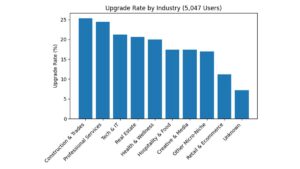How AI is Transforming Accounting
The accounting industry is changing faster than ever, thanks to artificial intelligence (AI). Tasks that once took hours of manual work are now automated, allowing accountants to focus on more valuable activities. From bookkeeping automation to real-time fraud detection and predictive analytics, AI is reshaping how financial professionals work.
In this article, we’ll explain what AI in accounting really means, show real-world examples of how it’s used, highlight the benefits for accountants and businesses, and look at what the future of accounting with AI might hold.
What Is AI in Accounting?
Simply put, AI in accounting is the use of machine learning and automation to handle financial tasks that used to be manual. Instead of relying on people to enter every number, AI-powered accounting software can:
- Read receipts, invoices, and bank statements.
- Automatically classify expenses and income.
- Spot unusual patterns that may signal fraud.
- Generate insights into cash flow and profitability.
In other words, AI doesn’t replace accountants. Instead, it gives them smarter tools to save time, reduce errors, and deliver deeper financial insights.
Examples of AI in the Accounting Industry
AI is not just theory anymore. In fact, it is already working behind the scenes in many accounting firms and businesses. Here are some of the most common uses:
1. Automated Data Entry & Reconciliation
Traditional bookkeeping required hours of typing transactions into ledgers. Now, AI tools can scan receipts, invoices, and bank statements and enter the data automatically. This reduces human error and saves hours of manual work.
For example, SparkReceipt uses AI to scan and categorize receipts in multiple languages and currencies, making bookkeeping faster and more reliable.
2. Expense Categorization & Bookkeeping Automation
Many expense apps use a simple database approach. If you shop at Walmart, they tag it as “Groceries.” However, this often leads to mistakes, for example, buying printer paper at Walmart should be an “Office Supply,” not “Groceries.”
AI solves this by analyzing what was purchased, not just where. That way, it correctly categorizes both office supplies and food, even if they come from the same store.
3. Payroll & Report Generation
AI can also run payroll, prepare monthly summaries, and generate tax-ready reports. As a result, firms spend less time on repetitive admin and more time on advising clients.
4. Fraud Detection & Compliance
Fraud detection has always been a challenge. But with AI, firms can monitor transactions in real time. Algorithms learn what “normal” spending looks like, then flag suspicious activity like duplicate invoices or unusual withdrawals.
5. Predictive Analytics & Scenario Planning
AI doesn’t just automate—it also predicts. By analyzing financial history, it can forecast future cash flow, model seasonal changes, and test “what if” scenarios. This helps businesses make smarter, data-driven decisions.
Benefits of AI for Accountants and Firms
So, why are firms turning to AI? Because the benefits go beyond just working faster.
- First, it saves time by automating repetitive data entry and categorization.
- Second, it improves accuracy since fewer manual errors slip through.
- In addition, AI enhances fraud protection by spotting problems early.
- As a result, accountants can shift into a strategic role—advising on taxes, financial growth, and business planning.
- Finally, clients benefit too, as AI creates instant reports, personalized insights, and even automated updates.
AI in Accounting Software (2025 Update)
Looking for AI-powered accounting tools? Several platforms already include smart automation:
- SparkReceipt – AI categorization powered by OpenAI, supports 150+ currencies, integrates with QuickBooks, and allows custom categories.
- Xero – Automates bank reconciliation and learns transaction patterns.
- QuickBooks Online – Offers transaction categorization and AI-driven cash flow forecasting.
- Expensify – Automates expense reporting and receipt scanning for teams.
- Zoho Expense – Affordable solution for SMBs with AI features.
- SAP Concur / Oracle NetSuite – Enterprise-level AI platforms with advanced compliance tools.
While many platforms serve larger firms, SparkReceipt stands out for freelancers, small businesses, and remote teams that need powerful automation without enterprise-level complexity.
How AI Is Changing the Role of Accountants
With AI doing much of the manual work, accountants are free to focus on higher-value tasks. Instead of being data processors, they are becoming trusted advisors.
- They can guide clients on tax strategies.
- They can help businesses plan investments.
- They can provide scenario modeling to reduce financial risks.
In short, AI doesn’t remove the need for accountants. Rather, it elevates their role by giving them more time to provide strategic insights.
Mandaatti, a Finnish bookkeeping company with offices in six cities, highlights this shift. They note, “Today, accountants rarely need to touch paper. With AI and cloud-based software, every transaction is available to authorized users, saving time and making financial management much easier.” This real-world example shows how accounting firms are benefiting from automation and how much the industry has evolved.
Challenges and Considerations
Even though AI is powerful, it isn’t perfect. Businesses still need to manage risks and responsibilities.
- Human oversight remains essential. AI provides insights, but accountants must interpret and confirm them.
- Data privacy and security are critical. With sensitive data moving into cloud systems, firms must comply with GDPR and other regulations.
- Ethical use matters. Firms should be transparent about how AI decisions are made to maintain trust with clients.
The Future of AI in Accounting
Looking ahead, AI will only grow more capable. In the near future, we can expect:
- Automated tax categorization and optimized deductions.
- Smarter managerial accounting for forecasting and decision-making.
- AI-powered client communication and reporting for real-time advice.
Accountants who embrace AI now will stay ahead of the curve. Those who resist may struggle to keep up with clients who expect faster, smarter, and more personalized service.
Conclusion
AI is already transforming the accounting industry. By automating routine tasks, improving accuracy, and offering predictive insights, AI allows accountants to focus on strategy instead of paperwork.
With tools like SparkReceipt, these benefits are not limited to large firms. Freelancers, consultants, and small businesses can now enjoy the same AI-powered automation for expense tracking and reporting.
The future of accounting is not about replacing accountants with machines. It’s about giving accountants the tools they need to deliver more value than ever before.




